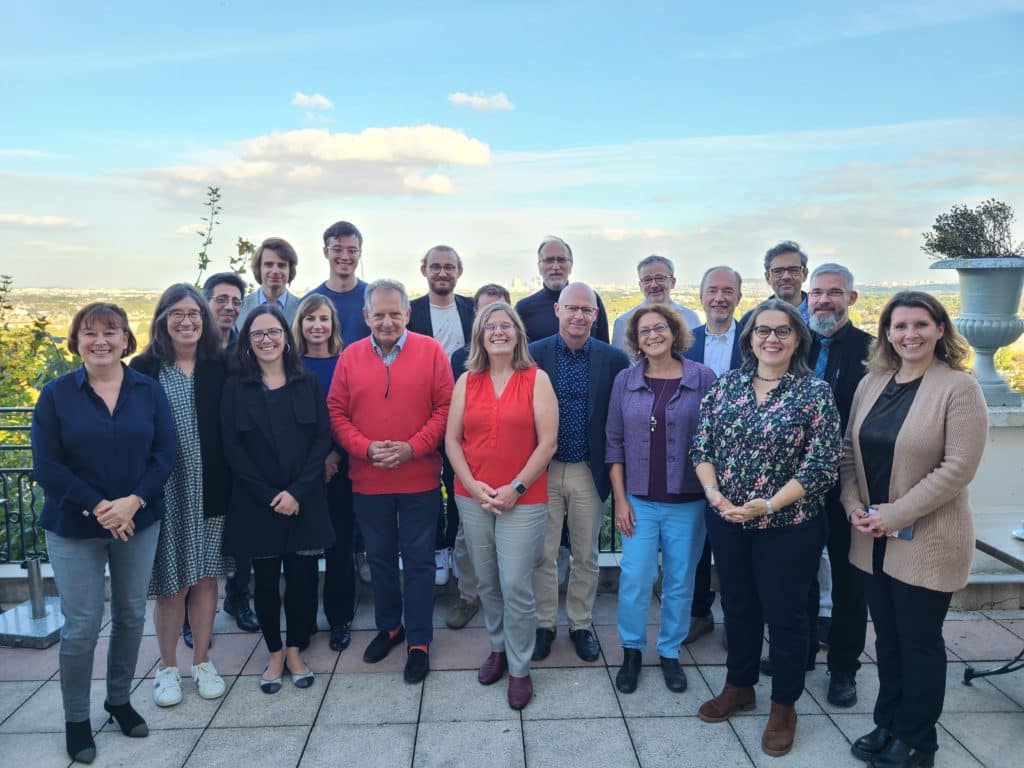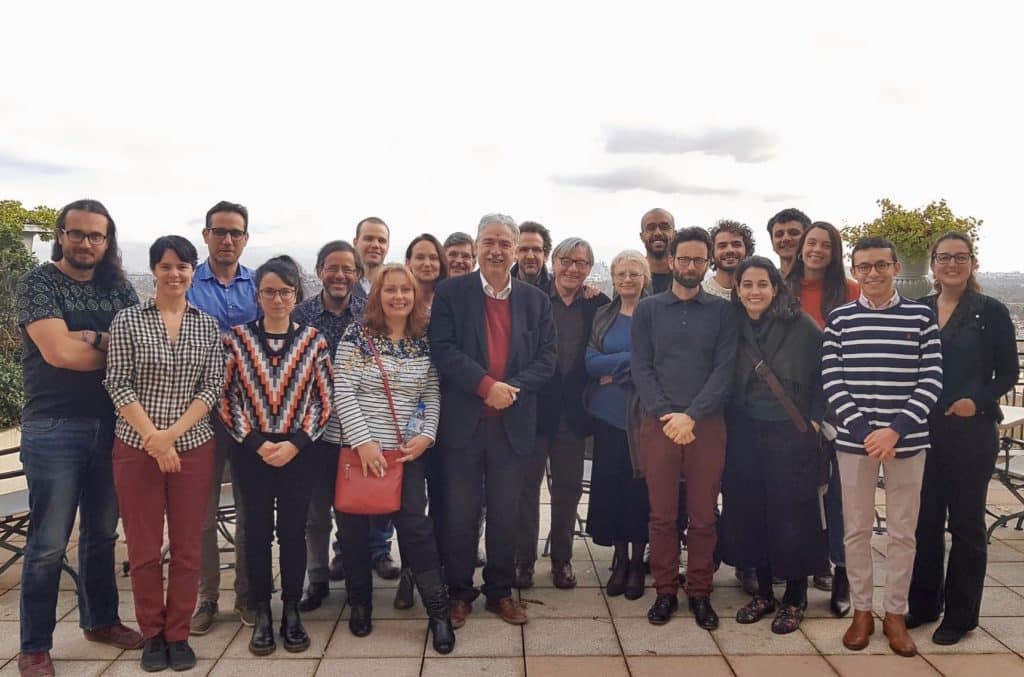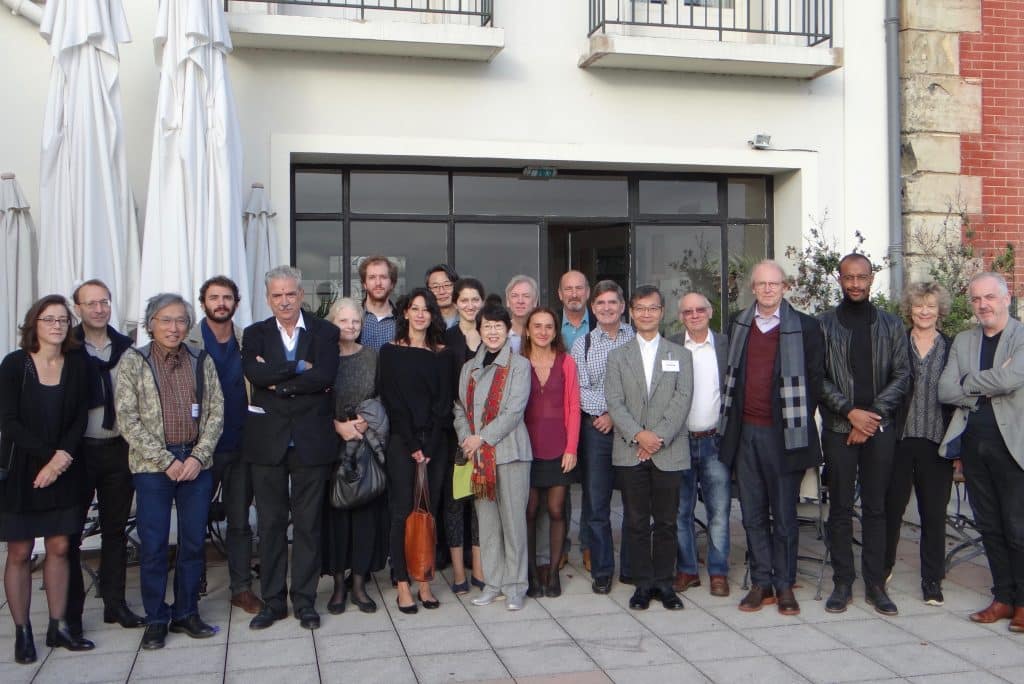Marie SORESSI – Organizer
Replay Steven KUHN – School of Anthropology, University of Arizona
Multiple thresholds in the evolution of cooperation among humans?
Replay Mary STINER– School of Anthropology, University of Arizona, Tucson, Arizona, USA
Cooperation versus collaboration in human evolution
Replay Judith BURKART – Department of Evolutionary Anthropology, University of Zürich
A cooperative breeding first-model of human evolution
Erella HOVERS – 1Institute of archaeology, The Hebrew University of Jerusalem
2Co-director, Minerva Center for the Study of Population Fragmentation
Is it cooperation yet ?
Andréa MIGLIANO – Department of Evolutionary Anthropology, Universität Zürich
Origins and Evolution of Human Cumulative Culture and Cooperation in the Human Foraging Niche
Christian MEYER– University of Konstanz, Germany
The Mutual Accomplishment of Cooperation: Sociality from an Interactionist Perspective
Replay Hub ZWART – Erasmus University Rotterdam
Deepening human self-understanding: exploring deep history by fostering the philosophy-archaeology dialogue
Replay Susan PEETERS – Erasmus University Rotterdam
The other side of the story, breaking with the traditional hero narrative in human evolution
Replay Anne PISOR – Department of Anthropology & Social Science Research Institute, Penn State University
The socio-ecology, cognition, and social networks behind long-distance cooperation
Replay Ivan COLAGÈ – Faculty of Philosophy and DISF Research Centre, Pontifical University of the Holy Cross
Cooperation and the Evolution of Transmission Strategies in Human Culture
Replay Solange RIGAUD – CNRS, Univ. Bordeaux, Ministère de la Culture, PACEA, UMR 5199, Pessac, France
Tracking otherness: the role of personal ornaments in shaping cultural complexity and social engagement
Replay Gilbert TOSTEVIN – Department of Anthropology, University of Minnesota, USA
Good Will Hunting, Self-Domestication, and the Evolved Apprentice: Considering the role of lithic technology in three hypotheses about the evolution of human prosociality.
Replay Friederike RANGE -Domestication Lab, Konrad Lorenz Institute of Ethology, University of Veterinary Medicine Vienna, Vienna, Austria
Rethinking Dog Domestication: Insights from Wolf-Dog Comparisons on Cooperation and Human Social Evolution
Replay Emily COCO – Yale University, Paleoarchaeology Lab
Using agent-based modeling to investigate how mobility and human niche construction facilitate interactions
Replay Liran SAMUNI – Department of Human Evolutionary Biology, Harvard University
Evaluating cooperation and conflict through the lens of Pan
Replay Nicolas CLAIDIERE – CNRS researcher at the Centre de recherche en psychologie et neuroscience in Marseille, France
New insights into the social cognition of non-human primates using automatic cognitive testing
Replay Guy THERAULAZ -Centre de Recherches sur la Cognition Animale, Centre de Biologie Intégrative, CNRS UMR 5169, Université Toulouse III – Paul Sabatier, Toulouse, France Collective intelligence in animal societies and human groups
Replay Dietrich STOUT – Director, Center for Mind, Brain, and Culture
Chair of Anthropology Emory University
The evolution of cooperation: how and why?
Miriam Noël HAIDLE – Research center “The role of culture in early expansions of humans“ of the Heidelberg Acacademy of Sciences and Humanities at Senckenberg Research Institute, Frankfurt/M. and the University of Tübingen
Keeping up the tradition. Cooperation and situated learning in a community of practice
Vincent NIOCHET – *presenter and PhD candidate, Human Origins research group, World Archaeology Department, Faculty of Archaeology, Leiden University, The Netherlands
Prehistoric engineers
Janet KELSO – Department of Evolutionary Genetics, Max Planck Institute for Evolutionary Anthropology
The contribution of genetics to understanding past populations
Cooperation is a fundamental aspect of human behaviour today and likely played a crucial role throughout human evolution. Despite this, much of evolutionary research on human sociality has centred on individual cognitive capacities, leaving the evolution of cooperation relatively underexplored. The Fyssen Foundation, which promotes interdisciplinary scientific inquiry into the cognitive mechanisms underlying animal and human behaviour, offers a unique opportunity to foster cross-disciplinary knowledge transfer on cooperation, both in contemporary contexts and throughout human evolution.
This three-day symposium will bring together human evolution experts with experts from anthropology, ethology, evolutionary biology, philosophy, psychology and sociology to achieve two main goals: 1) reflect on some of the key points on cooperation’s role in human evolution; 2) assess how insights from present-day cooperation in both humans and non-humans can foster the development of a better understanding of the evolutionary origins of human cooperation.


